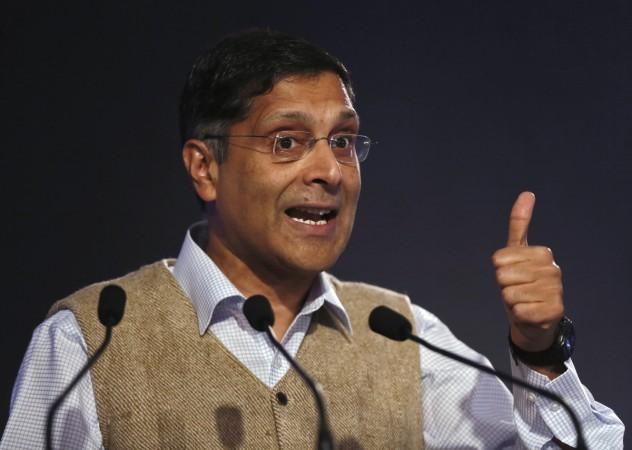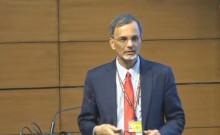![A Congress supporter sits next to an effigy of Prime Minister Narendra Modi during a protest against the implementation of the Goods and Services Tax in Kolkata on July 2, 2017.[Representational Image] GST effect](https://data1.ibtimes.co.in/en/full/668479/gst-effect.jpg?h=450&l=50&t=40)
The government said the economy has shrugged off the impact of demonetisation and confusion spurred by the Goods and Services Tax (GST) and is expected to close the year within the range of 6.75-7.5 percent.
Data released by the Central Statistics Office on Thursday, showed that India's economy expanded 6.3 percent year-on-year in the third quarter of 2017, above 5.7 percent in the previous quarter which was the lowest in the last three years.
But, though the economy limped back to growth this quarter, it was slightly below the market expectation of 6.4 percent.
Investment and inventories growth also rebounded, offsetting a slowdown in both private and public spending.
"Growth this quarter indicates that perhaps the impact of two structural reforms is now behind us and hopefully, in the coming quarters, we can look at an upward trajectory. The most significant aspect is the fact that this quarter's positive result is impacted by growth in manufacturing," Finance Minister Arun Jaitley told reporters.
The manufacturing sector expanded 7 percent during the September quarter compared to 1.2 percent in the previous quarter. However, slowdown in the services and agriculture were a drag on overall growth.
The government's Chief Economic Adviser Arvind Subramanian also said that there were some price pressures in the economy such as global rise in prices of crude oil and higher vegetable prices like onions and tomatoes.
"We have a situation where, on the crop side, especially oil seeds and pulses, the government took action, while perishable prices have moved up. It is an odd situation this year," said Subramanian.
The farm sector grew only 1.7 percent in the September quarter, slower than the previous quarter's 2.3 percent.
"Overall the source of growth in the first half has been the urban areas. However certain important schemes such as the Bharatmala project, low cost housing in rural areas are expected to mitigate the trend," said Soumya Kanti Ghosh, group chief economic adviser at State Bank of India.
Further last month, one of the largest rating company Moody's upgraded India' sovereign bonds for the first time in nearly 14 years. It said that the country's ongoing progress on economic and policy reform will enhance the country's growth potential.

The rating firm also expects the economy to grow 6.7 percent in the fiscal year ending March 31 and 7.5 percent the following year.
Following a stronger growth this quarter and rising inflation the Reserve Bank of India is expected to hold the trigger and keep rates unchanged at its December policy meeting showed a latest Reuters survey.
The government on the other hand, wants a reduction in the official interest rates in the coming months as it expects inflation to stay close to 4 percent target, according to the finance ministry officials.
"We expect the RBI to cut policy rates, if not in December then in its next policy review," said an official.









